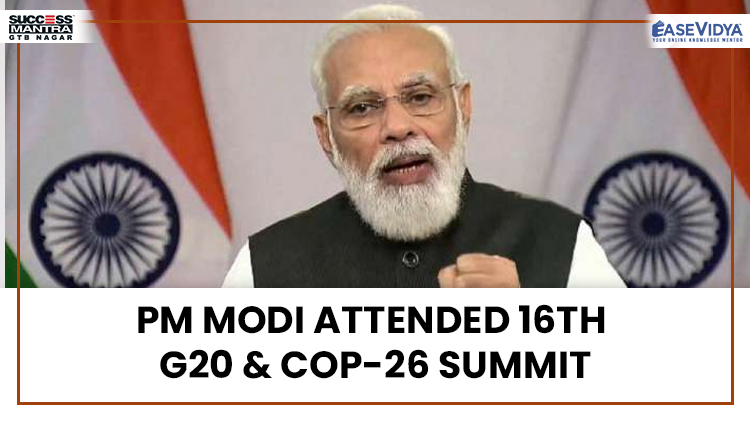
PM MODI ATTENDED 16TH G20 AND COP 26 SUMMIT
PM MODI ATTENDED 16TH G20 & COP-26 SUMMIT
Prime Minister Modi had attended the 16th G20 Summit which was scheduled to be held in Rome on October 30-31, 2021. He paid tribute to Mahatma Gandhi on his first day of arrival in Rome and he also called on Pope Francis in the Vatican during his two-day visit. Prime Minister Narendra Modi visited Rome and the Vatican City from October 29 to October 31, 2021, at the invitation of Prime Minister of Italy Mario Draghi.
In the recently concluded G20 summit, the leaders made a commitment to reach carbon neutrality by or around mid-century. They have adopted the Rome Declaration (the current presidency of G20 countries is being held by Italy). Earlier, the G20 Climate Risk Atlas was released which provides climate scenarios, information, data and future changes in climate across the G20 countries.
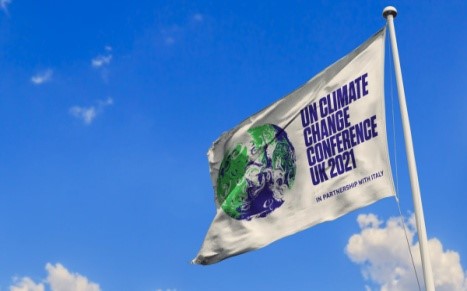
Current Affairs Notes By Success Mantra Coaching Institute GTB Nagar Delhi CLICK HERE
HIGHLIGHTS OF THE DECLARATION
- Roadmap for COP 26: It urged leaders of the world’s biggest economies to put their action plans to tackle the global climate change crisis. This is a significant step in the context of the upcoming UN climate conference (COP 26) in Glasgow, Scotland.
- Restricting Aid to Coal Based Plants: It included a pledge to halt financing of overseas coal-fired power generation by the end of this year (2021).
- PPP Model of Finance Mobilisation: Public-Private Partnerships (PPP) are the only way to achieve the trillions of dollars in annual investment needed to transition to clean, sustainable energy sources that will mitigate the warming of global temperatures.
- Declaration by India: Addressing Vaccine Inequality: Underlining the need to address vaccine inequity across the world, India is ready to produce over 5 billion vaccine doses by the end of next year (2022). India also emphasised on vaccine research, manufacturing and innovation.
- One Earth One Health: The vision of “One Earth One Health”, or the need for a collaborative approach in the international domain in the fight against the pandemic.
- Resilient Global Supply Chains: India highlighted the need for resilient global supply chains and invited G-20 countries to make India their partner in economic recovery and supply chain diversification.
- Support for Global Minimum Tax: India also lauded the G-20’s decision to come up with a 15-percent minimum corporate tax to make the global financial architecture “more just and fair”.
- Welcoming Indo-Pacific Strategy: India welcomed the European Union’s Indo-Pacific strategy and French leadership in it.
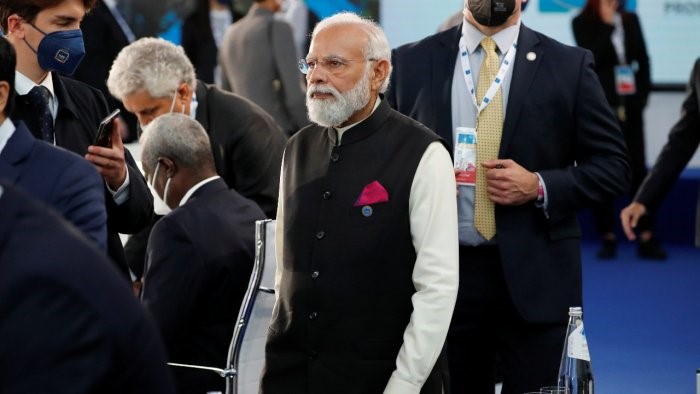
ASSOCIATED CONCERNS
- Half-Hearted Steps: The statement contained few concrete actions and made no reference to a specific 2050 date to achieve net-zero carbon emission. Moreover, the statement removed references in a previous draft to the target to “reduce emissions significantly”.
- No target for Phasing out Coal: It set no target for phasing out coal domestically, a clear nod to top carbon polluters China and India. For example, China has not set an end date for building domestic coal plants at home. Coal is still China’s main source of power generation, and both China and India have resisted attempts for a G-20 declaration on phasing out domestic coal consumption.
- No resolution on Vaccine Patent Waiver: It did not touch upon the dispute over vaccine patent waivers.
- Pressing India’s developmental Imperative: Climate negotiators from the US, EU and UK had made a number of visits to India over the past few months, pressing for India to update its Nationally Determined Contributions (NDCs) to include its target of 450 GW of renewable energy by 2030.
ABOUT G-20 (GROUP OF TWENTY)
It is an informal group of 19 countries and the European Union (EU), with representatives of the International Monetary Fund and the World Bank. It does not have a permanent secretariat or Headquarters. The membership comprises a mix of the world’s largest advanced and emerging economies, representing about two-thirds of the world’s population, 85% of global gross domestic product, 80% of global investment and over 75% of global trade.
Members: Argentina, Australia, Brazil, Canada, China, France, Germany, India, Indonesia, Italy, Japan, Republic of Korea, Mexico, Russia, Saudi Arabia, South Africa, Turkey, the United Kingdom, the United States and the EU.
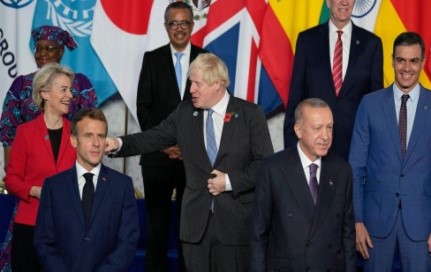
NEW PLEDGES AT COP-26 GLOBAL CLIMATE SUMMIT
Recently, leaders at the CoP26 global climate conference in Glasgow have pledged to stop deforestation by the end of the decade and slash emissions of methane to help slow climate change. Earlier, India announced that it will reach carbon neutrality by 2070 as part of a five-point action plan that included reducing emissions to 50% by 2030.
METHANE PLEDGE MADE AT THE SUMMIT
The European Union (EU) and the US have launched a landmark pledge to slash emissions of the powerful greenhouse gas methane, a commitment that could prevent 0.2 degrees Celsius of global warming. The alliance's members will seek to lower global emissions of methane - the second-largest contributor to climate change after carbon dioxide - by 30% below 2020 levels by 2030. Besides the EU and the US, more than 103 countries have signed up so far, including major methane emitters like Nigeria and Pakistan. The Global Methane Pledge (US), first announced in September 2021, now covers emissions from two-thirds of the global economy. China, Russia and India - have not signed up, while Australia has said it will not back the pledge.
Methane: A Concern
Methane is more short-lived in the atmosphere than carbon dioxide but 80 times more potent in warming the earth. Humanity has also boosted the greenhouse gases in the atmosphere by hacking away at the forests that absorb roughly 30% of carbon dioxide emissions, according to the nonprofit World Resources Institute. Human sources of methane include landfills, oil and natural gas systems, agricultural activities, coal mining, wastewater treatment, and certain industrial processes.
Deforestation Pledge: More than 100 national leaders pledged to halt and reverse deforestation and land degradation by the end of the decade, underpinned by USD 19 billion in public and private funds to invest in protecting and restoring forests. In 2020, the world lost 258,000 sq km of forest — an area larger than the United Kingdom, according to WRI’s Global Forest Watch. The agreement vastly expands a commitment made by 40 countries as part of the 2014 New York Declaration of Forests, and promises more resources.
PRAVAHINI Current Affairs Notes By Success Mantra Coaching Institute GTB Nagar Delhi CLICK HERE
CALL FOR CLIMATE FINANCE
India noted that climate finance cannot continue at the levels decided in 2009 (100 billion USD), and emphasised that it should be at least USD 1 trillion to meet the goals of addressing climate change. India underlined the unity and strength of Like-Minded Developing Countries (LMDC) as fundamental in the UNFCCC (United Nations Framework Convention on Climate Change) negotiations. To preserve the interest of the Global South in the fight against climate change, India highlighted that recognition of the current challenges being faced by developing countries required intensified multilateral cooperation, not intensified global economic and geopolitical competition and trade wars. India requested the LMDC members to join hands with India to support the global initiatives it has pioneered, including the International Solar Alliance (ISA), Coalition for Disaster Resilient Infrastructure (CDRI) and the Leadership Group for Industry Transition (LeadIT).
Infrastructure for Resilient Island States:
India launched this initiative as a part of the CDRI that would focus on building capacity, having pilot projects, especially in small island developing states. Small Island Developing States or SIDS face the biggest threat from climate change, India’s space agency ISRO will build a special data window for them to provide them timely information about cyclones, coral-reef monitoring, coast-line monitoring etc. through satellite.
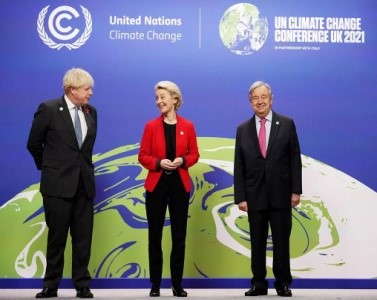
GREEN GRIDS INITIATIVE - OSOWOG LAUNCHED
Prime Minister Narendra Modi on November 2, 2021, launched the Green Grids Initiative – One Sun One World One Grid (GGI-OSOWOG) initiative jointly with his UK counterpart Boris Johnson at the event ‘Accelerating Clean Technology Innovation and Deployment’ at COP26 Climate Summit at Glasgow. In May 2021, India and the UK had agreed to combine the Green Grids Initiative and the One Sun One World One Grid and jointly launch GGI-OSOWOG at the COP26 Climate Summit in Glasgow in November 2021.
WHAT IS GREEN GRIDS INITIATIVE?
With sustainable development and climate change mitigation at the heart of the Green Grids Initiative – One Sun One World One Grid (GGI-OSOWOG) initiative, the (GGI-OSOWOG) initiative can aid in developing a common and strong global grid. The GGI-OSOWOG initiative is being developed by India, UK jointly in collaboration with the World Bank and India’s International Solar Alliance (ISA). The GGI-OSOWOG initiative was unveiled by the International Solar Alliance (ISA), India Presidency of the ISA, and the UK COP Presidency at COP26 Climate Summit in Glasgow on November 2, 2021. The launch was followed by the One Sun declaration which has been endorsed by 83 ISA member countries. India is a member of the CGI-OSOWOG Steering Committee along with four countries namely the UK, the US, France, and Australia.
What is One Sun One World One Grid initiative?
The idea of the One Sun One World One Grid (OSOWOG) initiative was proposed by PM Narendra Modi at the First Assembly of the International Solar Alliance (ISA) in October 2018. The OSOWOG initiative aims at interconnecting global grids to harness solar energy. The vision of the OSOWOG is ‘The Sun Never Sets’. In simple terms, OSOWOG will establish a single global grid to share solar energy across different countries, power the world with clean & renewable energy, and reduce dependence or usage of non-renewable energy such as coal.
FACEBOOK NAME CHANGED TO 'META'- CLICK HERE TO READ THE FULL ARTICLE ON SUCCESS MANTRA BLOG










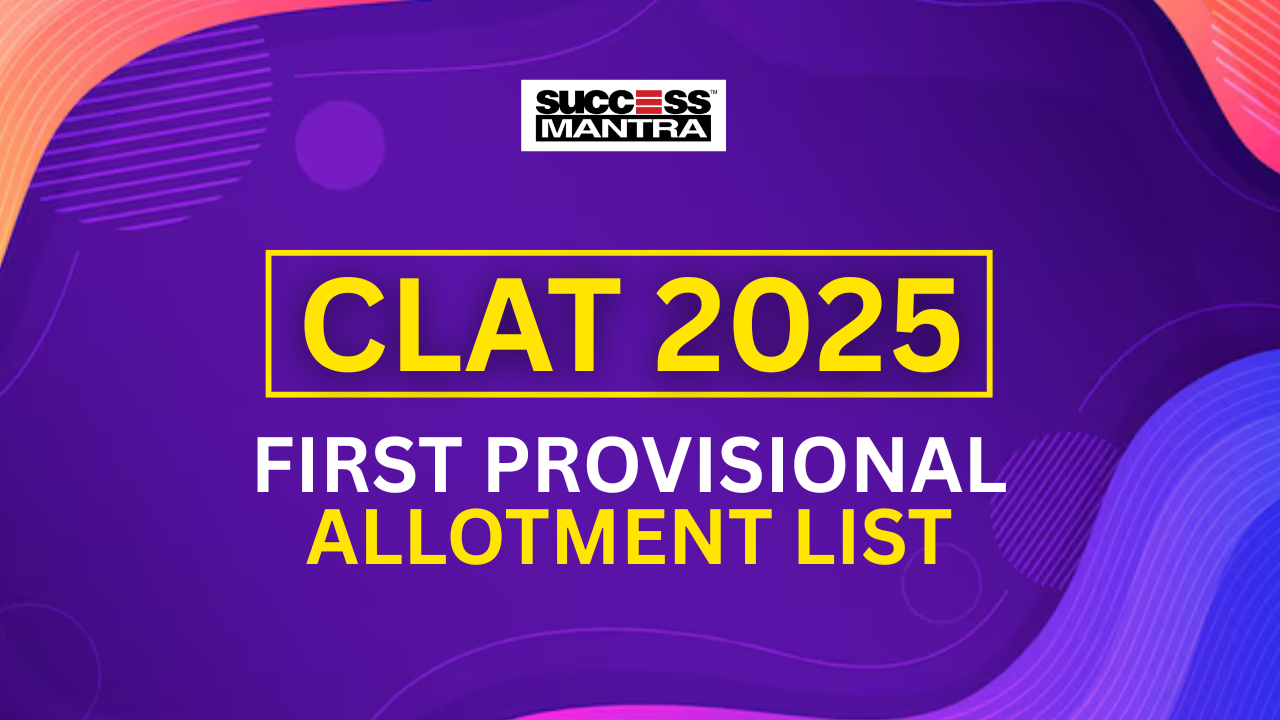


0 Comment